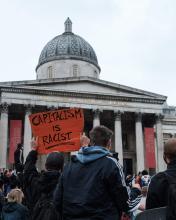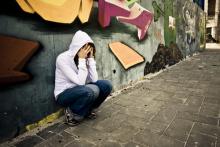loving your neighbor

As a Christian, I spend a lot of time meditating on what it means to love those who have been incarcerated. These people are a specific group Jesus names in Matthew 25:36-40, saying that when we visit people in prison, we’re visiting him. Throughout the Bible, God demonstrates a concern for the marginalized. When Christians meditate on what it means to love our neighbor (Matthew 22:37-39), we shouldn’t only think of those who live next door to us, but also those who are imprisoned. But with literal walls and bars separating the incarcerated population from the rest of society, what does it actually mean to love your incarcerated neighbor?

Capitalism and racism are united in their reliance on hierarchies of social difference; these hierarchies act as sites of exploitation where conflicts surrounding race, gender, or even borders all reinforce our current political economy. Also, the very acts of living and working, which are structured by capital, place you in conflict with yourself and others. Everyone is impacted by the relational flow and material forms of racial capitalism. And while it is true that everyone is impacted, it cannot be understated that those who are disproportionately impacted by this system are Black and brown people.

How do you love your neighbor when your neighbors sell drugs and exploit young women? I’m serious — this is a legitimate question that I am asking myself a lot lately and I am not sure I have the answer.
Nine years ago my wife and I moved into East Oakland to become a part of a small church community called New Hope and to direct InterVarsity’s Urban Project in the Bay Area. We’ve weathered some challenging experiences: stolen cars, physical assault, hearing a lot of shootings, witnessing a shooting, breaking up domestic violence, seeing a friend’s family torn apart by domestic violence, and endless amounts of trash on the streets. Don’t get me wrong, there is a lot to love about our neighborhood and community, but in recent months I think I’ve reached my limit.
The family that recently moved in across the street is friendly. The folks hanging out on the porch and the kids playing tetherball off the street sign honestly do contribute to the vibrant life of the block. But when I saw a total of 12 drug deals go down in broad daylight in the span of three days, loving my neighbor became a lot harder.